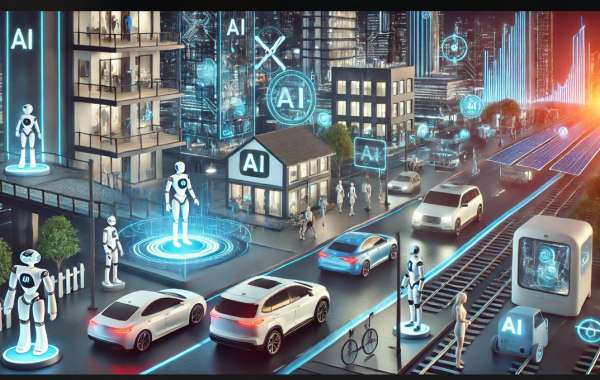One of the most promising areas of AI is healthcare. AI-powered algorithms can analyze vast amounts of medical data to detect diseases at an early stage, assist in drug discovery, and even aid in robotic surgeries. With AI-driven personalized medicine, treatments can be tailored to an individual’s genetic makeup, leading to more effective and efficient healthcare solutions. As AI continues to advance, we may see a future where doctors rely on intelligent systems to provide faster and more accurate diagnoses.
In transportation, AI is driving the development of autonomous vehicles, which have the potential to reduce accidents, optimize traffic flow, and make commuting safer and more efficient. Companies like Tesla and Waymo are already testing self-driving cars, and in the coming years, AI-driven transportation could become a norm. AI is also being integrated into public transport systems to enhance route planning and passenger safety, making urban mobility smarter and more sustainable.
Workplaces are also undergoing significant transformations due to AI. Businesses are using AI to automate repetitive tasks, analyze market trends, and enhance customer service through chatbots and virtual assistants. AI-driven analytics help companies make better decisions by processing vast amounts of data quickly and accurately. While some fear that AI might replace human jobs, it is more likely that AI will create new opportunities, allowing employees to focus on creative and strategic aspects of their work.
Despite its numerous benefits, AI also presents ethical and social challenges. Issues such as data privacy, algorithmic bias, and job displacement must be carefully addressed. Governments and tech companies must work together to establish ethical guidelines and regulations to ensure AI benefits everyone fairly. Transparency in AI decision-making and responsible data usage will be key to building trust in AI-driven systems.
The future of AI in everyday life is both exciting and complex. While it promises to make our lives more convenient, efficient, and innovative, it also demands careful consideration of ethical implications. As AI technology continues to advance, its responsible development and integration into society will determine how beneficial it truly becomes. With the right balance of innovation and ethical governance, AI has the potential to transform our world for the better.








